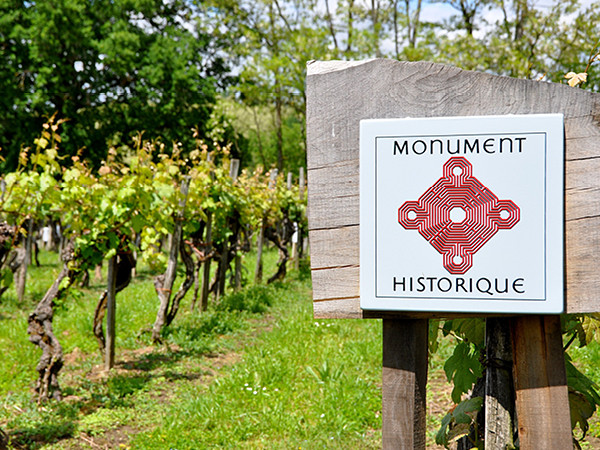
Headline Heroes: Harmonious sustainability
The Plaimont cooperative is not only an advocate of adapting to climate change, but also the custodian of heritage grape varieties. James Lawrence reports on its work to safeguard the future of wine.
The spectre of global warming, capricious and far-reaching, has been the driving force behind Plaimont’s ground-breaking research for over 25 years. Armed with a vine conservatorium (the largest private collection of vines in France) and a passion for sustainable viticulture, this dynamic cooperative is leading the fight against climate change by other means.
“We believe that instead of ‘fighting against’ the effects of changes (especially climatic ones), we should adapt to them,” says Olivier Bourdet-Pees, MD at Plaimont.
Indeed, Plaimont has long maintained a passionate commitment to the revival of forgotten vine varieties in the foothills of the Midi-Pyrénées; autochthonous grapes that can withstand higher temperatures, fluctuating weather patterns and prolonged drought. “We do not believe in curative technologies such as de-alcoholisation and acidification,” emphasises Bourdet-Pees.
“The exceptional heritage of Pyrenean grape varieties abandoned in past centuries (often because they did not ripen well) is a tremendous source of hope for continuing to live in harmony with our terroirs in the years to come. The first grape varieties we have replanted, such as Manseng Noir and Tardif, are, I believe, the best proof of this.”
Founded in 1979 by the visionary André Dubosc, Plaimont is a union of three cooperatives working at the heart of Gascony’s vignoble: Plaisance, Aignan and Saint Mont. Inspired by Dubosc’s love of indigenous grape varieties – and buoyed by ongoing investment – the firm has become a landmark producer with many strings to its bow. It has more than 800 growers cultivating 5,300ha of vines, used to create an eclectic palate of styles in the Madiran, Saint Mont, Pacherenc du Vic-Bilh and Jurançon AOCs, as well as the Côtes de Gascogne IGP. Today, Plaimont curates terroir-driven wines for enthusiasts who crave unique flavours and eschew ubiquitous grapes.
These include aromatic dry whites and powerfully structured reds. They have proven to be a major hit with those in the market for site-specific and authentic wines.
↓
Expert network
And yet, there is so much more. In addition to building up an extensive network of experts – viticulturists, ampelographers, and wine historians – Plaimont is a custodian of the Sarragachies vineyard in south western France, planted in the 19th century. According to Bourdet-Pees: “This vineyard contains 21 grape varieties that have otherwise disappeared, making it one of the greatest treasures of French viticultural heritage and a location for vital experimentation.” The association is also the proud owner of two ungrafted vineyards in the Saint-Mont appellation: one plot of Tannat planted in 1871 yields Plaimont’s greatest red wine, released in minuscule quantities (1,300 to 1,700 bottles per year). Food-friendly and expressive, this micro-production cuvée is revolutionary; it offers incredible concentration and unbelievable depth, with a freshness to balance the fruit.
Meanwhile, the cooperative inaugurated the Plaimont Grape Workshop in 2022, the largest vineyard research centre in south west France. It joins the Ampelographic Conservatory of Saint Mont (created in 2002) in the fields of innovation and viticultural conservation; the identity of several varieties planted in this experimental vineyard remains completely unknown. Nevertheless, by advocating an empirical approach to climate adaptation – not remotely didactic and very collegiate – Plaimont is inspiring others to safeguard wine’s future by resuscitating the past.
Olivier Bourdet-Pees, managing director, Plaimont
What principal changes, both environmental and cultural, have affected viticulture and winemaking in the Gascony region since your creation in 1979?
In 1979, André Dubosc and a few visionary winemakers broke away from mass production in the vineyard. They focused on lower yields, implemented green harvesting, isolated plots based on their potential and created wines from healthy grapes at just the right maturity. They also invested in tools to respect the grapes (cold storage, stainless steel, good hygiene practices, pneumatic presses), building excellence across the board.
What have been your key priorities, in terms of driving sustainable development, over the past five years?
At the forefront of adapting to major changes (climate, societal expectations), we inaugurated the Plaimont Grape Workshop in 2022. It is the largest vineyard research centre in south western France. Two engineers and an oenologist are working on grape varieties and techniques that will shape the viticulture of the future.
In addition, we have certified 90% of our vineyards in organic viticulture or at level 3 of High Environmental Value (biodiversity, fertilisation management, pesticides and water management). We have replanted the largest private grape conservatory in France (39 unknown or extinct varieties under study) to assess their potential in light of current challenges.
Finally, does sustainable vinegrowing always yield better wines?
A viticulture that takes sustainability issues into account does not always produce better wines. It does, however, produce rooted and sincere wines that reflect the place where they are made, showcasing the will and convictions of the people who created them.
Keywords:
- Côtes de Gascogne IGP
- Plaimont
- Olivier Bourdet-Pees
- Ampelographic Conservatory of Saint Mont
- Sarragachies vineyard





